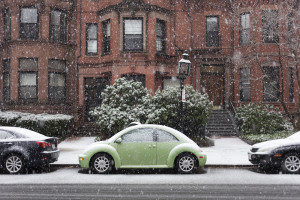 Connecticut drivers aren’t strangers to driving in the snow. However, we can all use a little reminder as to what to do to properly prepare for the winter season; which can put exponential wear and tear on your vehicle. There are a few simple precautions you can take to help your car survive the winter in good condition. Wear and tear cannot only affect the life of your vehicle, but also your car insurance premiums.
Connecticut drivers aren’t strangers to driving in the snow. However, we can all use a little reminder as to what to do to properly prepare for the winter season; which can put exponential wear and tear on your vehicle. There are a few simple precautions you can take to help your car survive the winter in good condition. Wear and tear cannot only affect the life of your vehicle, but also your car insurance premiums.
Here are some preventative measures to take during winter to avoid increased car insurance premiums:
Have your vehicle thoroughly inspected.
Before winter reaches the coldest months of the year, make sure that the maintenance on your car is evaluated thoroughly so everything is up to code. Change the oil and fill up both the wiper fluid and engine coolant. It is recommended to check tire pressure once a month to ensure it is consistently at the recommended PSI. You may want to add a little air into your tires anyway since the air will contract on bitter cold days. Doing this before sub-zero temperatures arrive will allow you to add an adequate amount of air while you can still feel your hands.
Make sure your tires are safe.
Check your tires before winter hits to make sure you have enough tread left on them. The roadways will be challenging enough without the extra worry of bald tires. A great way to check to see if your tires have sufficient tread is the penny test. Stick a penny face down into the tread of each of your tires – if you can still see more than half of Abraham Lincoln’s head, it’s time to consider replacing your tires. To get the best protection you could also invest in snow tires.
Don’t let your gas tank get too low.
If you have a habit of letting your gas tank run all the way down to ‘E’, try your best to break this habit during the winter. Your engine has to work harder when it’s cold out and you don’t want to risk running out of gas. Always keep your tank at least halfway full. By having half of a tank or less, it could cause ice to form in your fuel lines.
Be careful of where you park during bad weather.
Accumulated snowfall on tree branches can cause them to become weak and break. Do not park your car under any trees where weak branches can fall. You also shouldn’t park on the street during a storm. This could get your car buried or struck by a plow, or even get your car towed if there is a parking ban in effect – which will certainly increase your car insurance premiums.
Wash car regularly to prevent salt erosion.
In the winter, especially in New England, your car will be constantly picking up salt. If left on your car for an extended period of time, this salt can cause corrosion. Even though it can be difficult to do in the low temperatures, you should be rinsing off your car periodically. Spray the undercarriage of your car where it is the most susceptible to corrosion. If possible, try to shoot for once per month or whenever salt excessively builds up.
Leave an emergency kit in your car.
For the safety of yourself and any passengers you have with you, always keep an emergency kit in your car in the event you become stranded or have an accident. The kit should include blankets, a flashlight, washer fluid and flares. Also, make sure you have a reserve of water and nonperishable snacks.
Keep yourself safe and your car insurance premiums steady by preparing your vehicle for any situation that winter throws at you. With the speculation that New England will experience especially harsh weather conditions this year, you’ll also want to know how to better control your vehicle on snowy and icy roads.
